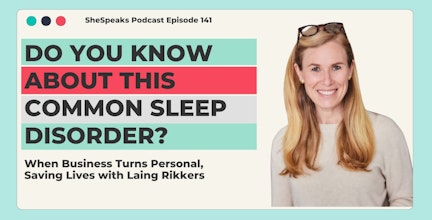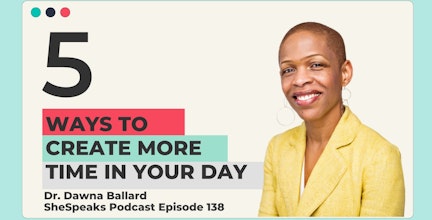The New Normal

I posted on my blog the other day about my worries raising a child with autism, and a fellow "autism mom" responded to my desire for my child to live a normal life with these words:
"Maybe we ARE the new norm!"
With an average of 1 in 110 children being diagnosed with autism,* and a new study by Academic Pediatrics that an estimated 43% of have a chronic health condition, I cannot help but agree. Locally, a significant percentage of kids in both my daughter's school and my church have autism. To me, it's apparent: the rise in disabilities has created a new normal. If that's true, what do you need to know to parent your kids alongside disabled kids? Here are a few ideas that will help you get a handle on it:
- School inclusion is here to stay. I hear parents complain about disabled kids being integrated into regular school classes and it saddens me. While 100% full inclusion may not be for every child, integrating children with disabilities as much as possible not only helps them, it increases awareness and tolerance in typically developing children. When my daughter with Down syndrome moved from a segregated "autism classroom" (a disability she does not have) to a mostly-inclusive grade class, her life changed. Not only did she gain friends and become an integral part of her classroom community, her academic skills improved a great deal. We ended the year with many of the parents telling me their kids were worried that they wouldn't be in Amelia's homeroom next year. I'd call that proof that inclusion works.
- No apologies. Today when I took my younger daughter to speech therapy, a parent who's child obviously had sensory processing problems apologized to me for her child. I was surprised that this otherwise totally-together mom felt any need to comment, especially when my daughter has the same problems. If you have a child with a condition or disability, STOP apologizing. You teach others how to treat you and if you apologize for their standard behavior, you are telling others that it is somehow "wrong". It's not, it's just who they are. Accept your child as he or she is 100%, and embrace them as who they were created to be. If you don't have a child with a disability, don't apologize for your child's curiosity when they ask about my child. It provides a learning opportunity and I don't mind answering questions that will help your family understand mine. And don't expect an apology when my kid is being who she is. Instead, learn to:
- Embrace the differences. Everyone is unique and I believe we all are on this Earth for a reason. Don't discount disabled kids. Let's work together to teach all our kids tolerance so that every child's purpose can shine through. Empower children to accept who they are right now. My daughter's school opened a program whereby they assigned each student a pen-pal who is a disabled adult living in a facility. I was thrilled to see my disabled daughter help another person with a disability. It has taught her to accept the differences she sees in other people better than just words alone. Get involved with programs that let your kids experience all that people with disabilities have to offer.
Having disabled children has taught me that we are all just flawed humans trying to make it in this world. As the group of people with special needs grows, we parents need to open our minds and hearts to their existence. If we do that, we can build a culture where everyone fits in, contributes, and is valued. What could be better than that?
*Source: CDC, Autism Data
Make a Comment
 by
Bryelee | Dover, DE
by
Bryelee | Dover, DEMy problem about inclusion is when it isn't working for the child and no changes are mad. I think you need to do what is best for the child and too many schools are more worried about what's best for them. As for the apologizing mom are you sure she wasn't trying to say something else? That has happened to me before where the staff wasn't listening or misunderstood something I said and commented anyway. Otherwise good article.
 by
ginabad | MACUNGIE, PA
by
ginabad | MACUNGIE, PAnmcdon, Actually I think everyone is "different". We put way too much emphasis on fitting in, and that can kill our dreams and crush our creativity. When my 8yo was little, I brought her to special needs daycare. I ran into another mother who looked at me terrified and said, "There's nothing wrong with my son. He just has a speech problem." I wish I had said, "There's nothing wrong with my daughter either. She has Down syndrome."
 by
nmcdon | Bellevue, NE
by
nmcdon | Bellevue, NEWonderful article. I never thought about not apologizing, but it makes total sense. It took me awhile to not be upset when people asked what was wrong with my son. I don't see anything as 'wrong' with him, just different. In my eyes, he is so perfect, and I forgot that he has super thick glasses and a helmet.
 by
ginabad | MACUNGIE, PA
by
ginabad | MACUNGIE, PAThanks, Lauralee. We still struggle with how to keep & maintain friends over the summer, or how to help our kids even make friends. My older girl is a social butterfly, though. Good luck to you!
 by
lauralee | NEW YORK, NY
by
lauralee | NEW YORK, NYLove this article. My daughters have had kids with speech delays in their classes at preschool. My highly verbal daughter loved to play with one of her friends who left for a specialized school. I know his progress has been quicker there but I hope they meet up again in kindergarten if we can't make playdates happen in the meantime. She misses him. A couple of my nephews have had learning issues but have stayed in mainstream settings with specialized help and are prospering.










_01252024061712.jpg?max-w=432&max-h=220&fit=crop&auto=format)

_10242023164832.jpg?max-w=432&max-h=220&fit=crop&auto=format)


_08172023152001.jpg?max-w=432&max-h=220&fit=crop&auto=format)


 (6)_07082023175312.jpg?max-w=432&max-h=220&fit=crop&auto=format)
 (1)_05192023144508.jpg?max-w=432&max-h=220&fit=crop&auto=format)

 (37)_05032023114523.jpg?max-w=432&max-h=220&fit=crop&auto=format)